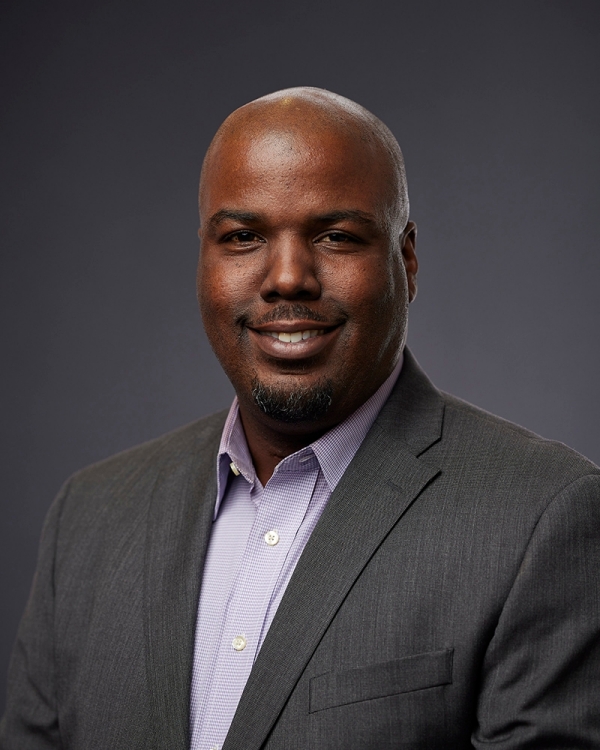By Maria Nairn, Gaylord College Class of 2025
Once Jay Gilmore graduated with his bachelor’s degree in mass communication from Middle Tennessee State University, he knew he wanted to work in the television sports broadcasting world. He landed his very first job out of school in Laredo, Texas. He went on to work at different news channels in Huntsville, Alabama; West Palm Beach, Florida; and Atlanta, Georgia over the following nine years.
After 11 years working in sports broadcasting and working year-round, including holidays, Gilmore decided that he wanted to transition into academia.
“I don't even think it was about making a decision,” Gilmore said. “I think it was about getting hired... it's kind of difficult to just start teaching at a school at that point.”
Because of his years of knowledge and experience in on-air journalism, he began as a high school broadcast teacher. He stayed at the high school level for four years before he began teaching university students. Gilmore taught at West Virginia University before moving to the University of Memphis. Due to the COVID-19 pandemic in 2020, he stopped teaching at the University of Memphis and began at Belmont University in Nashville, Tennessee.
During his transition from teaching high school to college level courses, Gilmore took a year to attend graduate school at the University of Alabama. While working on a two year program in journalism, he also taught at Middle Tennessee State University. “It was a two year program,” he said. “But I wasn't interested in two years. So in 12 months, I fast-tracked it... So I was teaching three or four classes at Middle Tennessee State while taking three or four classes at Alabama. Just because I wanted to teach college students and no longer teach high school students.”
After a two year stint at Belmont, Gilmore toured Gaylord in June of 2023. He said that the Gaylord student work ethic is what convinced him to come to the University of Oklahoma.
“The students that I ran into here in June when they could be on a beach, enjoying their summer; they’re amazing year-round,” he said. “A young lady gave me a tour and there was a group of students on like a Tuesday or Wednesday morning during the summer. And there they were there waiting to do some work. I don’t know what the work was. But they were there and they spoke to me about their love for Gaylord... It was impressive.”
The resources available at Gaylord also contributed to Gilmore’s decision, as he did not have access to the same opportunities as an undergraduate. “I went to a great broadcasting school. So from a student perspective it was great but from an administrative perspective, from a professor perspective, we didn't have students in Washington DC. We didn't have students in Nashville at the SEC Media Days... The Gaylord student has everything you all need to be successful.”
When asked what he hopes to leave with Gaylord students, Professor Gilmore said he hopes his students feel like he has contributed to their careers in journalism.
“I want the students here to feel like I impacted their lives. I might not even feel like that. But if they tell me that, I'll just trust their word and walk with some humility. So if I can make makes students think ‘I'm glad he's our professor’, or ‘I'm glad he works here’. ‘I'm glad I was in this class’. When I leave I'll be happy. I'll be thankful and grateful.”
As a current student of his, it is clear to me that Professor Gilmore is nothing if not intentional with his teaching. His appreciation for his students and their education is evident in the way he structures his classes and discussions with considerable forethought. His experience as a broadcast journalist in the field helped prepare him to educate future generations of journalists.
